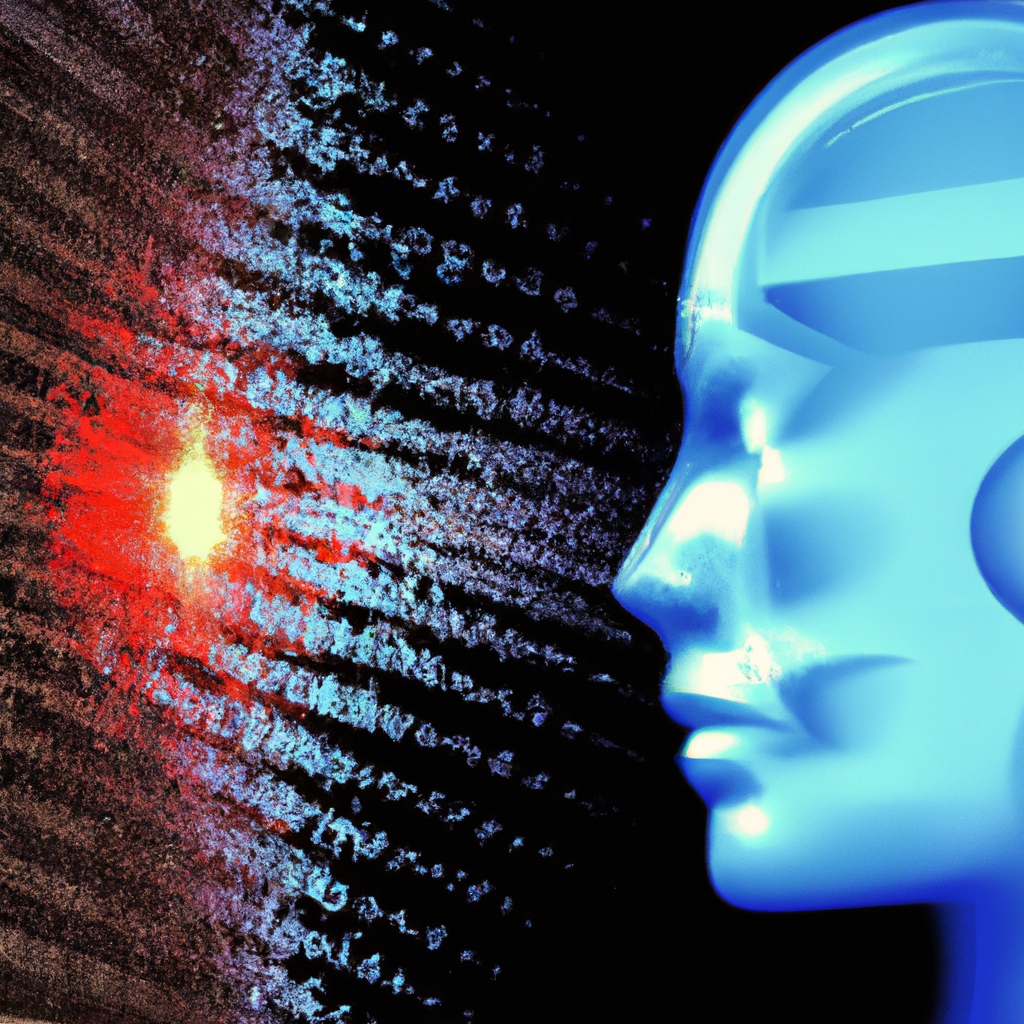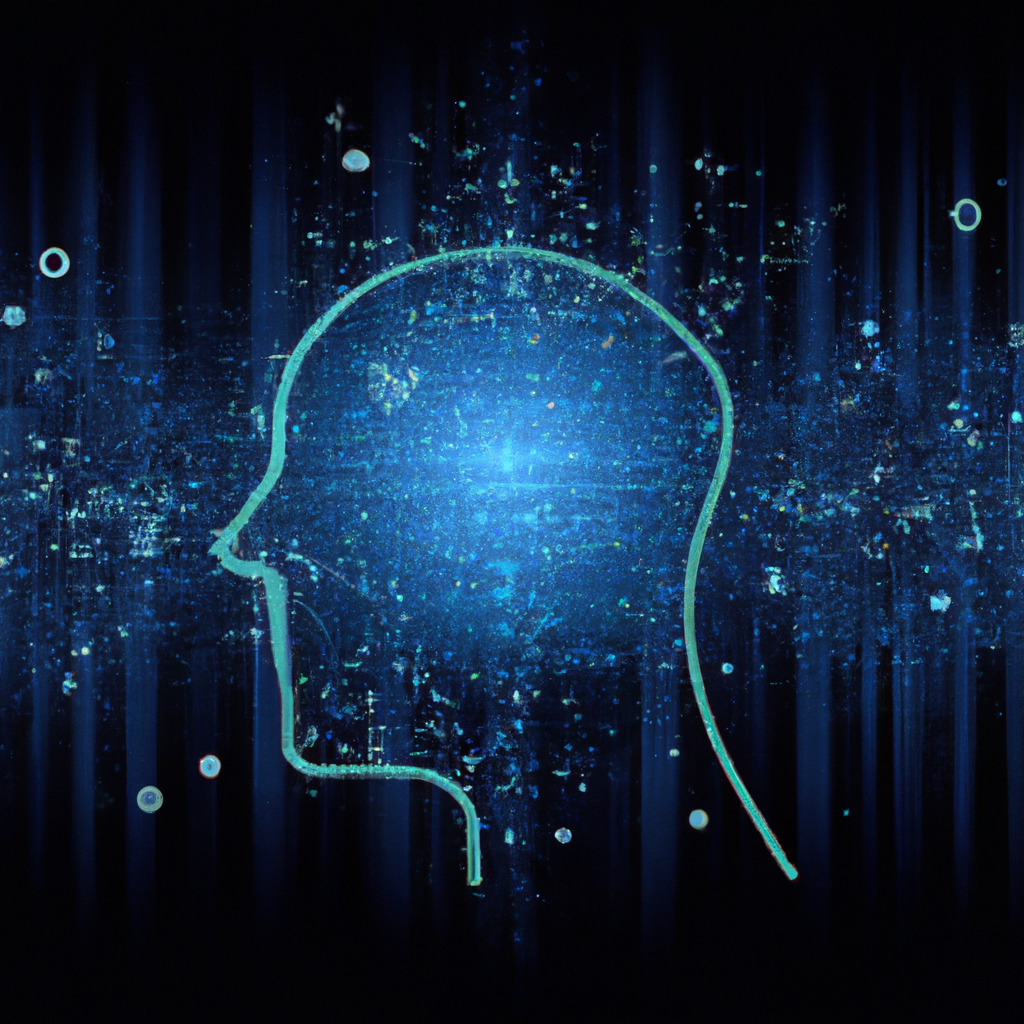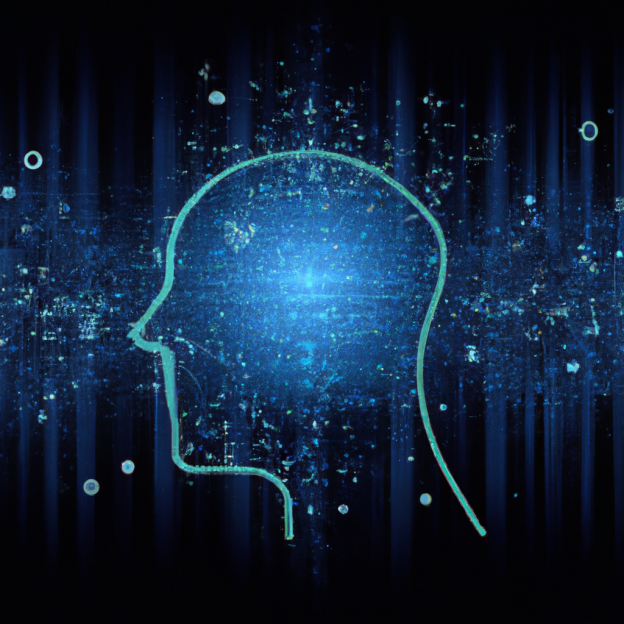Digital marketing has become an essential tool for businesses to connect with their target audience and drive growth. However, with the rise of artificial intelligence (AI), there are concerns that this powerful technology may someday take over the realm of digital marketing. As AI continues to evolve and demonstrate its ability to analyze data, personalize content, and optimize campaigns, it raises the question of whether human marketers will still have a place in this rapidly advancing industry. In this article, we will explore the potential impact of AI on digital marketing and discuss the unique skills and perspectives that human marketers bring to the table.
The Rise of AI in Digital Marketing
Artificial Intelligence (AI) has become a game-changer in various industries, and digital marketing is no exception. With advancements in AI technology, businesses now have access to powerful tools that revolutionize their marketing strategies. From automated data analysis to hyper-personalized marketing campaigns, AI has had a significant impact on digital marketing.
Advancements in AI Technology
AI technology has witnessed tremendous advancements in recent years. Machine learning algorithms have become more sophisticated, enabling AI systems to process and analyze vast amounts of data with remarkable efficiency. Natural Language Processing (NLP) has also improved, allowing AI-powered tools to understand and generate human-like language.
AI’s Impact on Digital Marketing
The impact of AI on digital marketing cannot be overstated. It has completely transformed the way businesses approach their marketing efforts. AI-powered tools have made it possible to automate tasks that were once time-consuming and labor-intensive. They have also revolutionized the way businesses interact with their customers, enhancing targeting and personalization. Let’s dive deeper into some of the areas where AI has made a significant impact.
AI-Powered Marketing Tools
AI-powered marketing tools have emerged as indispensable assets for businesses looking to stay ahead in the digital landscape. These tools leverage AI technology to streamline various marketing processes, saving time and resources.
Automated Data Analysis
One of the most significant advantages of AI in digital marketing is its ability to automate data analysis. AI tools can process and analyze large volumes of data in real-time, providing businesses with valuable insights and trends. This enables marketers to make data-driven decisions and optimize their strategies more effectively.
AI-Driven Content Creation
Creating engaging and relevant content has always been a challenge for marketers. However, AI-powered content creation tools are changing the game. Through machine learning algorithms, these tools can generate content tailored to specific audiences, saving marketers time and effort while ensuring high-quality output.
Chatbots and Virtual Assistants
Chatbots and virtual assistants have become increasingly popular in the digital marketing landscape. These AI-powered tools can handle customer inquiries, provide personalized recommendations, and even complete transactions. Chatbots ensure round-the-clock customer support, enhance user experience, and free up human resources to focus on more complex tasks.

Improved Customer Targeting and Personalization
Effective customer targeting and personalization are crucial for successful marketing campaigns. AI has revolutionized this aspect of digital marketing, enabling businesses to maximize their reach and engagement.
AI-Driven Data Collection and Analysis
With AI, businesses can collect and analyze vast amounts of customer data. AI tools can track customer behavior, preferences, and interactions across various digital platforms. This valuable data helps marketers gain deeper insights into their target audience, allowing for more accurate targeting and personalization.
Enhanced Customer Segmentation
AI technology has greatly enhanced the accuracy and efficiency of customer segmentation. By analyzing data patterns and behavior, AI tools can group customers into distinct segments based on their preferences and characteristics. Marketers can then tailor their campaigns to target each segment effectively, resulting in higher engagement and conversions.
Hyper-Personalized Marketing Campaigns
AI enables the creation of hyper-personalized marketing campaigns that resonate with individual customers. By leveraging data analytics and machine learning algorithms, businesses can deliver highly targeted content, recommendations, and offers to each customer. This level of personalization not only improves customer satisfaction but also increases the chances of conversion.
Optimized Advertising Campaigns
Advertising plays a vital role in digital marketing, and AI has proven to be a game-changer in this domain. AI-powered ad platforms and real-time optimization techniques have revolutionized the way businesses run their advertising campaigns.
AI-Powered Ad Platforms
AI-powered ad platforms, such as Google Ads, use machine learning algorithms to optimize ad targeting and placement. These platforms analyze user data and behavior to deliver ads to the most relevant audience at the right time. This ensures maximum visibility and conversion rates for businesses.
Real-Time Ad Optimization
AI technology enables real-time ad optimization, allowing businesses to adjust their ad campaigns on the fly. By analyzing performance metrics and user responses, AI-powered systems can make immediate changes to ad placement, targeting, and creative elements. This dynamic approach ensures that advertising efforts yield the best possible results.
Programmatic Advertising
Programmatic advertising is another area where AI has had a significant impact. Through AI algorithms, programmatic advertising uses real-time data and bidding systems to automate the buying and selling of ad inventory. This streamlines the advertising process, making it more efficient and cost-effective for businesses.

Enhanced User Experience
AI has transformed the user experience landscape by providing businesses with tools to personalize website interactions, improve navigation, and deliver exceptional customer support.
AI-Driven Website Personalization
Websites can now be personalized in real-time based on user behavior and preferences. AI-powered tools analyze user data to deliver customized content, recommendations, and offers, creating a personalized experience for each visitor. This not only enhances user satisfaction but also increases the chances of conversions.
Optimized User Interface and Navigation
AI plays a crucial role in optimizing user interface (UI) and website navigation. By analyzing user interactions and behavior, AI tools can identify areas for improvement, such as simplifying navigation or enhancing the UI design. This results in a seamless user experience, increasing engagement and reducing bounce rates.
AI-Powered Customer Support
Chatbots and virtual assistants, mentioned earlier, provide AI-powered customer support that is available 24/7. These tools can handle a wide range of customer inquiries, provide instant responses, and resolve common issues. This ensures prompt and efficient support, improving customer satisfaction and loyalty.
Efficient Lead Generation and Conversion
AI has revolutionized lead generation and conversion optimization by automating various processes and providing predictive analytics.
AI-Driven Lead Scoring and Qualification
Lead scoring and qualification are critical components of successful marketing campaigns. AI-powered tools can analyze customer data and behavior to assign scores and assess the likelihood of conversion. This allows marketers to prioritize leads and focus their efforts on high-value prospects.
Automated Lead Nurturing
AI enables automated lead nurturing through personalized communication and targeted campaigns. AI tools can segment leads based on behavior and preferences, enabling businesses to send tailored content and offers. This automated nurturing process helps build relationships and guide leads through the customer journey effectively.
Predictive Analytics for Conversion Optimization
Predictive analytics is a powerful tool offered by AI technology. By analyzing historical data and patterns, AI tools can predict customer behavior, such as the likelihood of conversion. This enables marketers to optimize their campaigns and strategies, maximizing the chances of converting leads into customers.
Reduced Costs and Increased Efficiency
AI technology has enabled businesses to reduce costs and improve efficiency in their marketing efforts through automation and data-driven decision-making.
Automated Workflows and Processes
AI-powered tools automate repetitive tasks and workflows, freeing up human resources to focus on more strategic activities. This automation not only saves time but also reduces the likelihood of human error, resulting in increased efficiency and productivity.
AI-Driven Analytics and Reporting
AI-powered analytics tools provide real-time insights and reports, eliminating the need for manual data analysis. These tools can identify trends, patterns, and correlations in datasets that would be impossible for humans to identify manually. This saves time, enhances accuracy, and allows marketers to make data-driven decisions more effectively.
Streamlined Campaign Management
AI-powered campaign management tools simplify the process of planning, executing, and monitoring marketing campaigns. These tools can automate tasks like scheduling and tracking, ensuring campaigns run smoothly and efficiently. Marketers can also gain real-time visibility into campaign performance, allowing for quick adjustments and optimizations.
Ethical Concerns and Implications
While AI technology offers numerous benefits to digital marketing, it also raises ethical concerns and implications that must be addressed.
Data Privacy and Security Risks
The collection and storage of vast amounts of customer data raise concerns about privacy and security. AI-powered tools must ensure data protection and compliance with relevant regulations to maintain customer trust. Businesses must prioritize data privacy and implement robust security measures to mitigate these risks.
Lack of Human Touch and Emotional Connection
AI-powered systems lack the human touch and emotional connection that traditional marketing approaches can provide. Building emotional connections with customers is essential for brand loyalty and advocacy. Businesses must strike the right balance between using AI and incorporating human interaction to maintain authentic relationships with customers.
Potential Job Displacement
The rise of AI in digital marketing has raised concerns about job displacement. As AI systems automate various tasks, there is a fear that human marketers may lose their jobs. However, the continued role of human marketers is discussed in the next section, highlighting their unique skills and abilities that AI cannot replicate.
The Continued Role of Human Marketers
While AI technology has undoubtedly transformed digital marketing, the role of human marketers remains crucial in many aspects.
Creative and Strategic Thinking
AI may excel at data analysis and optimization, but it cannot match human creativity and strategic thinking. Human marketers bring unique insights, intuition, and the ability to think outside the box. They can develop innovative campaigns, storytelling, and brand experiences that resonate with customers on a deeper level.
Building Emotional Connections with Customers
As mentioned earlier, human connection and emotional engagement are vital in marketing. Human marketers have the ability to establish and nurture emotional connections with customers, fostering loyalty and advocacy. It is the human touch that adds empathy, understanding, and relatability to marketing efforts.
Ethical Decision-Making
Ethical decision-making is a critical aspect of marketing. Human marketers possess the moral compass and judgment needed to make ethical choices. They can ensure marketing campaigns, strategies, and technologies align with ethical standards and do not exploit or deceive customers.
Finding the Right Balance
The optimal approach lies in finding the right balance between AI and human expertise in digital marketing.
Human-AI Collaboration
Human-AI collaboration can combine the strengths of both entities. By leveraging AI technology for repetitive tasks, data analysis, and optimization, human marketers can focus on higher-level strategy, creativity, and human connections. This collaboration brings out the best of both worlds, creating powerful marketing campaigns.
Leveraging AI for Routine Tasks
AI technology can effectively handle routine, data-driven tasks, allowing human marketers to allocate their time and energy to more critical activities. By automating processes like data analysis, reporting, and lead nurturing, AI frees up resources and enhances productivity.
Combining AI with Human Expertise
AI should be seen as a tool that enhances human marketing capabilities rather than replacing them entirely. By combining AI technology with human expertise, businesses can create exceptional marketing experiences that blend data-driven insights, creativity, and emotional connections. This approach ensures the best possible outcomes for both businesses and customers.
In conclusion, AI has irrefutably transformed the digital marketing landscape, bringing numerous benefits to businesses. From automated data analysis to hyper-personalized campaigns, AI-powered tools have made marketing more efficient, targeted, and effective. However, human marketers still play a vital role, bringing creativity, emotional connections, and ethical decision-making to the table. By finding the right balance between AI and human expertise, businesses can leverage the power of AI while maintaining the human touch that customers value. The rise of AI in digital marketing is an opportunity for businesses to enhance their marketing efforts and deliver exceptional experiences.
